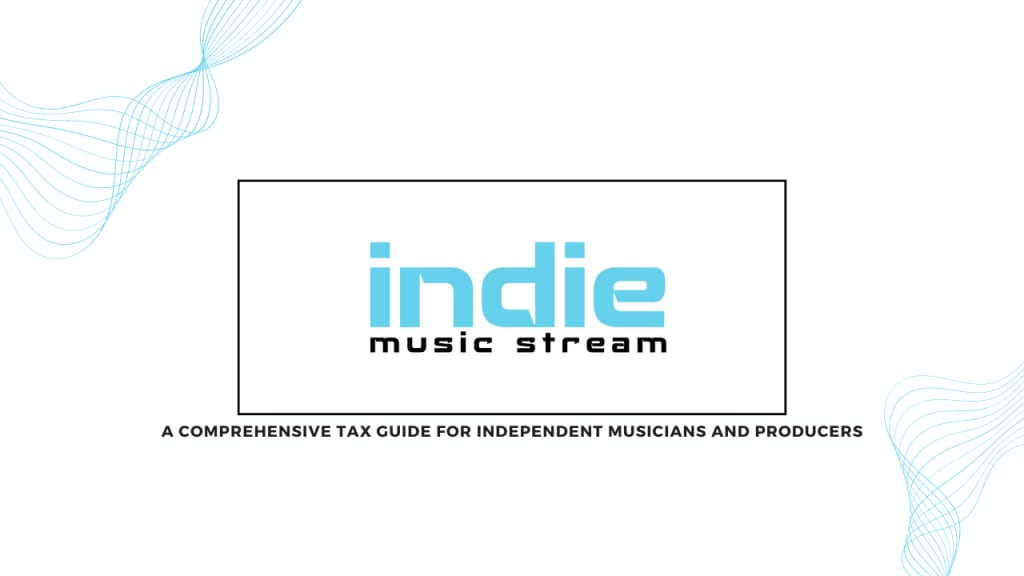A Comprehensive Tax Guide for Independent Musicians and Producers
Uncovering Tax Deductions and Strategies for Musicians and Producers

Navigating the tax landscape as an independent musician or producer can be a challenging task. With various deductions, credits, and reporting requirements, it's essential to have a thorough understanding of the tax codes that apply to your unique situation. This comprehensive guide will walk you through some of the most relevant tax codes and deductions for independent musicians and producers in the United States. Please note that tax laws are subject to change, and it is always a good idea to consult with a tax professional to ensure the most accurate and up-to-date information.
Self-Employment Tax (Schedule SE):
As an independent musician or producer, you are considered self-employed, which means you are responsible for paying both income tax and self-employment tax. Self-employment tax consists of Social Security and Medicare taxes, which are typically withheld from an employee's paycheck. To report and pay these taxes, you'll need to complete Schedule SE and attach it to your Form 1040 (individual tax return).
Business Expenses (Schedule C):
One of the most significant tax benefits for independent musicians and producers is the ability to deduct business-related expenses. You can report these expenses on Schedule C, which is also attached to your Form 1040. Some common deductions for musicians and producers include:
Equipment purchases or rentals (instruments, recording gear, software)
Studio rental or rehearsal space costs
Travel expenses for gigs or business-related trips
Marketing and promotional expenses (websites, merchandise, advertising)
Professional fees (legal, accounting, management)
Production costs (CD pressing, mastering, artwork)
It's crucial to maintain accurate records and receipts for all your business expenses, as the IRS may require documentation in case of an audit.
Depreciation (Form 4562):
When you invest in expensive equipment such as instruments or recording gear, you may be able to depreciate these assets over time. Depreciation allows you to deduct a portion of the cost each year, spreading the expense over the useful life of the asset. To report depreciation, you'll need to complete Form 4562 and attach it to your tax return.
Home Office Deduction (Form 8829):
Many independent musicians and producers use a dedicated space in their homes for work purposes, such as recording, composing, or administrative tasks. If you use a portion of your home exclusively and regularly for your music business, you may be eligible for the home office deduction. This deduction can include expenses related to:
Rent or mortgage interest
Property taxes
Utilities (electricity, water, gas)
Repairs and maintenance
To claim the home office deduction, you'll need to complete Form 8829 and attach it to your tax return. Be prepared to provide documentation, such as square footage measurements and expense records, to substantiate your claim.
Qualified Business Income Deduction (Section 199A):
The Tax Cuts and Jobs Act (TCJA) introduced the Qualified Business Income (QBI) Deduction, which allows some self-employed individuals to deduct up to 20% of their qualified business income. This deduction is subject to various limitations and requirements, so it's essential to consult with a tax professional to determine if you're eligible and how to properly claim the deduction.
Business Entertainment Expenses:
Prior to the TCJA, independent musicians and producers could deduct 50% of business entertainment expenses. However, the TCJA eliminated this deduction. You can still deduct 50% of the cost of meals associated with your music business, provided they meet certain requirements, such as being directly related to your business or incurred while traveling for business purposes.
Self-Employed Health Insurance Deduction:
Health insurance can be a significant expense for independent musicians and producers. If you are self-employed and not eligible for health insurance through a spouse's employer or another source, you may be able to deduct the cost of your health insurance premiums. This deduction is taken as an adjustment to your income on your Form 1040 and can include premiums for medical, dental, and long-term care insurance for yourself, your spouse, and your dependents.
Retirement Contributions:
Saving for retirement is essential, and as a self-employed individual, you have several options for retirement plans. Popular choices for independent musicians and producers include Simplified Employee Pension (SEP) IRAs and Solo 401(k) plans. Contributions to these plans can be tax-deductible, reducing your taxable income and potentially your tax liability. Contribution limits and eligibility requirements can vary, so consult with a financial advisor to determine the best retirement plan option for your situation.
Navigating the tax landscape as an independent musician or producer can be complex, but understanding the relevant tax codes and deductions can help maximize your tax savings and keep more money in your pocket. Be sure to consult with a tax professional or conduct thorough research to ensure you're accurately reporting your income and taking advantage of all possible deductions. By staying organized, maintaining accurate records, and staying informed about tax law changes, you'll be better prepared to manage your music business's financial health and achieve long-term success.
About the Creator
Indie Music Stream
Indie Music Stream is dedicated to helping independent artists. We believe that every artist deserves a chance to have their music heard. We are committed to providing as many resources as possible.
Power to the creators!
#IndieMusicStream






Comments
Indie Music Stream is not accepting comments at the moment
Want to show your support? Send them a one-off tip.